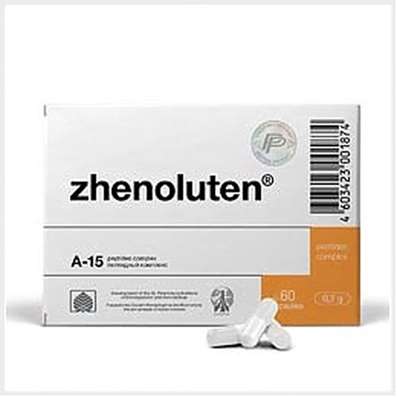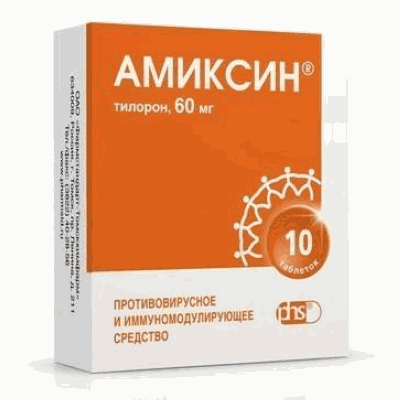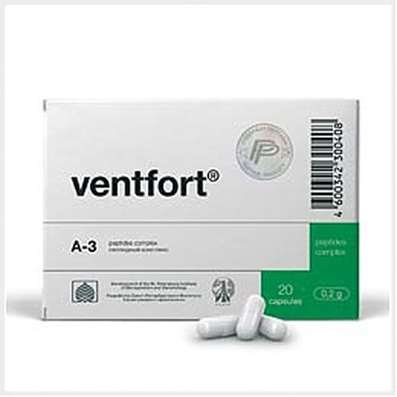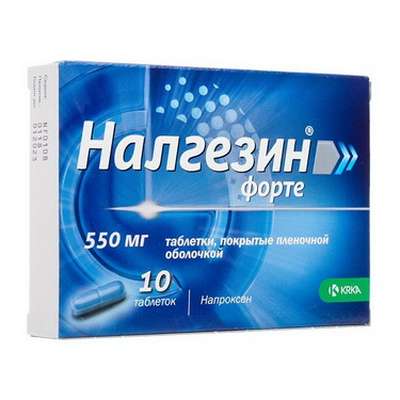Take a pill - become smarter
19 Dec 2016
Is it necessary to stimulate the brain drugs or energy drink?
Can I prepare for the session for one night with the help of "pills for the mind", what is the most effective way to get the brain to work and why energy is not pedal "gas" and " anti-brake" - to these and other questions are answered by the science department.
Approaching the end of December - a time when pupils and students begin to prepare to pass the exam, enroll in universities, the protection of student projects and, of course, the delivery of the sessions. And if students usually prepare for the exam throughout the year under the watchful eye of parents and teachers, it's students prefer to postpone training for the last day, and even on the night before the exam. To learn in such a short time, a few dozen tickets - the problem is not the easiest, so the most advanced young people decide to help the brain cope with suddenly surging flow of information and go to the pharmacy for "pills for the mind" - Glycine, Phenotropil, Piracetam, Semax and other neuroprotective drugs. Science Department decided to investigate whether it makes sense to drink these pills and whether it could lead to undesirable consequences.
How it works
Neuroprotective drugs (Nootropics)have the following definition: "The funds that have a specific positive impact on higher integrative functions of the brain. They improve mental activity and stimulate cognitive function, learning and memory, increases brain resistance to various damaging factors.”
Different nootropic drugs act on the body in different ways: some directly affect nerve cell (having a direct effect on it), some - improves cerebral blood flow, having anti-hypoxic effects, causing the body to better dispose of oxygen (ie, have an indirect effect on the brain).
Today, it is believed that one of the main mechanisms of action of nootropic drugs is their effect on the neurotransmitter systems of the brain. Neurotransmitters - a biologically active chemical substance, due to which electrical pulses are passed from one brain neuron to another via synapses (connections between neurons). Neurotransmitter provides postsynaptic cell activation (i.e., one that receives a signal), and whereby the signal is transmitted.
Changing the force of the synapse is called synaptic plasticity and is the main mechanism responsible for memory formation and learning.
In addition to effects on neurotransmitter nootropic drugs may affect the utilization of glucose and oxygen to the brain, improve the exchange of nucleic acids, activate the synthesis of certain proteins or ATP (adenosine triphosphate - a substance that serves as a universal source of energy for all processes occurring in the body).
How it all began
The first nootropic drug appeared in 1963 - it was then the Belgian pharmacologists created Piracetam, which is now known under the trade name "Nootropil". Initially nootropics (by the way, the term itself was introduced only in 1972) have been used in the treatment of brain function in the elderly, but is now used much more broadly, in psychiatry, Addiction, for the treatment of the effects of head injuries.
Piracetam (as well as many other nootropics) is not registered as a drug in the US and European countries, since its effectiveness has not been proven.
In some other countries, including the Russian, Piracetam widely used in medical practice, particularly in the reduction of stroke or dyslexia.
Not to be confused with drugs!
In addition neuroprotective drugs, there is another group of stimulants called "stimulants". Some of them belong to the Narcotic Substances and their action is similar to the action of nootropics.
One of the most common are psychostimulant drugs such as Adrafinil, Modafinil, Ritalin, Adderall, all these drugs are banned in Russia, but widely used, for example, in US for the treatment of attention deficit hyperactivity disorder and fatigue.
Adderall and Ritalin enhance the action of dopamine released by certain nerve cells and increases the susceptibility of cells to other neurotransmitters.
These drugs have a pronounced effect, and that is why in the United States, many students and schoolchildren specifically asked doctors to write them a prescription for this drug before important exams and sessions.
Another drug banned in Russia under the name "Modafinil" should be used for the treatment of sleepiness associated with narcolepsy, but the Office of the Food and Drug US Administration approved its use for the treatment of sleep disorders associated with shift work. On Modafinil pay attention to the military and police in some countries of the world, in order to suppress the need for sleep in their employees. There is also evidence that the drug improves the ability to memorize new information.
Do "Mind Pill" Effective
The effectiveness of drugs prohibited in Russia proved, in contrast to those "pills for the mind", which can be easily purchased at your local pharmacy and take before the session. One of the cheapest and most popular products - glycine - is the simplest amino acid, which really is a neurotransmitter. Glycine Manufacturers claim that the drug has a mild sedative effect, increases efficiency, and stimulates mental activity, but the problem is that the neurotransmitter gets into the brain from the gastrointestinal tract is very slow. This makes glycine normal dietary supplement, and its effectiveness in terms of improving brain function has not been proved, and what was reported on the website RxList - intended for physicians and patients a resource, which contains information on pharmaceuticals.
Glycine - is, of course, shit, chicken egg in it ten times more than in tablets. I do not know who came up with glycine for brain drink. It's like starch is from gout.
Another popular among students preparing for the session, a drug called "Phenotropil" is worth more than a glycine, and should be sold by prescription, but you can buy it without any problems. Previously, the drug included in the list of vital and essential medicines, but was expelled from it. It also is prohibited and the World Anti-Doping Agency, as it stimulates the human motor responses and increases physical endurance.
Phenylpiracetam was created in the USSR, the Institute of Biomedical Problems, as a stimulant for the astronauts. The developer of the drug calls Phenotropil not nootropic, but a neuromodulator.
This means that it does not directly stimulate neurons and alter their response to neurotransmitter action.
On the question of how Phenotropil effective, a definitive answer is not: for example, March 16, 2007 was published the resolution of the presidium meeting formulary of the Russian Academy of Medical Sciences Committee, which stated: "Immediately remove from the list of drugs, which is used by drug provision program DLO, older drugs with unproven efficacy ", was subsequently listed and Phenotropil. Publications in international peer-reviewed journals, that would indicate the effectiveness of the active ingredient of the drug Phonturacetam, no (to the extent that is usual in the case of drugs with no doubt about the effectiveness).
Content is not because nobody cares about Phenotropil abroad. "Reality exists independently of scientific articles. Have you tried Phenotropil? This is not a placebo. He just does not interest anyone outside of Russia.
In general, the ability to remember - too broad concept. It happens that the episodic memory works well, consolidation is mediocre, and skills do not digest. It happens the other way around. Sometimes remembering, modulated locally simple neuromodulation, and there are complex state of attention (memory problems - this is usually a problem of attention).
Trying something to stuff into one variable - it's like trying to classify all the people on the length of hair. You can, of course, but it is one-billionth of reality.
I stand on the fact that trying to gain a diet of psychoactive substances for scientific articles - a great folly. Even if they are, they say very little, and can not in any way reflect your response. All people are different. From tablets Phenotropil or Adderall no one has died, "- he says.
Before the exams I sometimes drank Phenotropil, especially when you do not have time to properly prepare, - says Andrew, an economics student at the Higher School of Economics. - Once per day drank five tablets. Cheer, of course, very much - at night for six hours, was concentrated on the tickets. But then he departed for a long time - a headache, could not sleep, and do at the same time also nothing like it was a state of complete apathy. But I think it's because of the five tablets when drinking one, everything was normal. In general, a lot of my friends drank the pill: most just before the exams, some - course. In the second case, as I was told, the effect is not as bright, but longer.
Energy drink is not the "gas" pedal but "anti-brake"
Less radical students prefer tablets energy drinks: the brain, they do not stimulate, but not sleep help. On why it is not necessary to experiment with them, the Department of Science said Alexei Vodovozov, physician-toxicologist, blogger and member of the Club of Science Journalists:
"The best way to get the brain to operate at maximum efficiency - to give him a rest. Normal sleep is not replaced by any pills.
But sleep during the session, according to many students, not comme il faut. To maintain the vigor used all the available arsenal of chemical, including, for example, "Energy". But the trick is that the main component of these drinks - caffeine - no "gas" and "anti-brake" he only temporarily postpones the braking process in the brain. Yes, somewhat improved the ability to remember, but it is fair at best, in respect of the first banks "energy". And then accumulates a snowball a variety of negative consequences, including fatal. In the database of side effects of the use of FDA caffeine products have information about several fatalities after the abuse of "Energy". Severe complications that required hospitalization, and are described for an extremely popular drink in Russia.
The scale of the problem is not so small. Only in the US and only 5 thousand overdoses "Energy" was officially registered in 2007, with half of them fell on the youth under the age of 19 years. Russian toxicologists also repeatedly faced with the consequences of abuse, "liquid energy". Experiments on the brain's own rarely result in something good, if the brain itself is not used for its intended purpose.

 Cart
Cart





